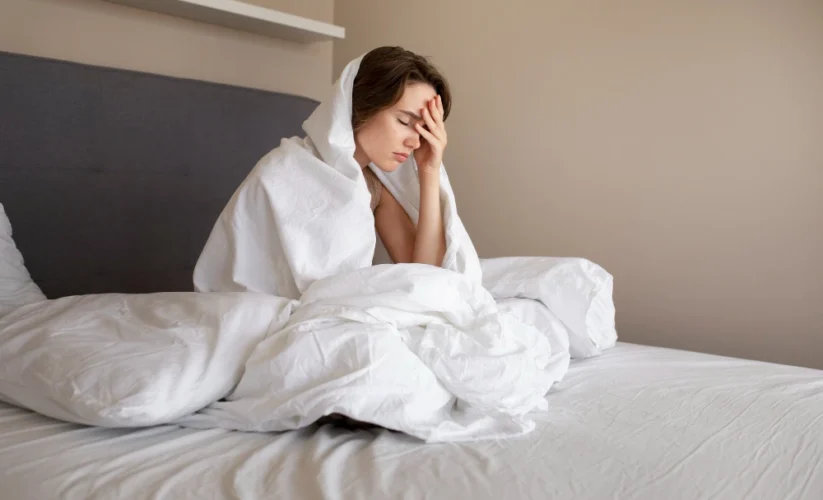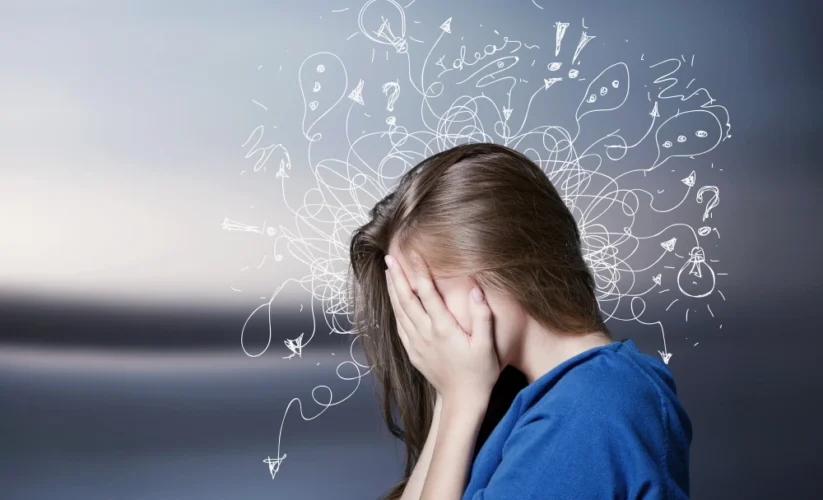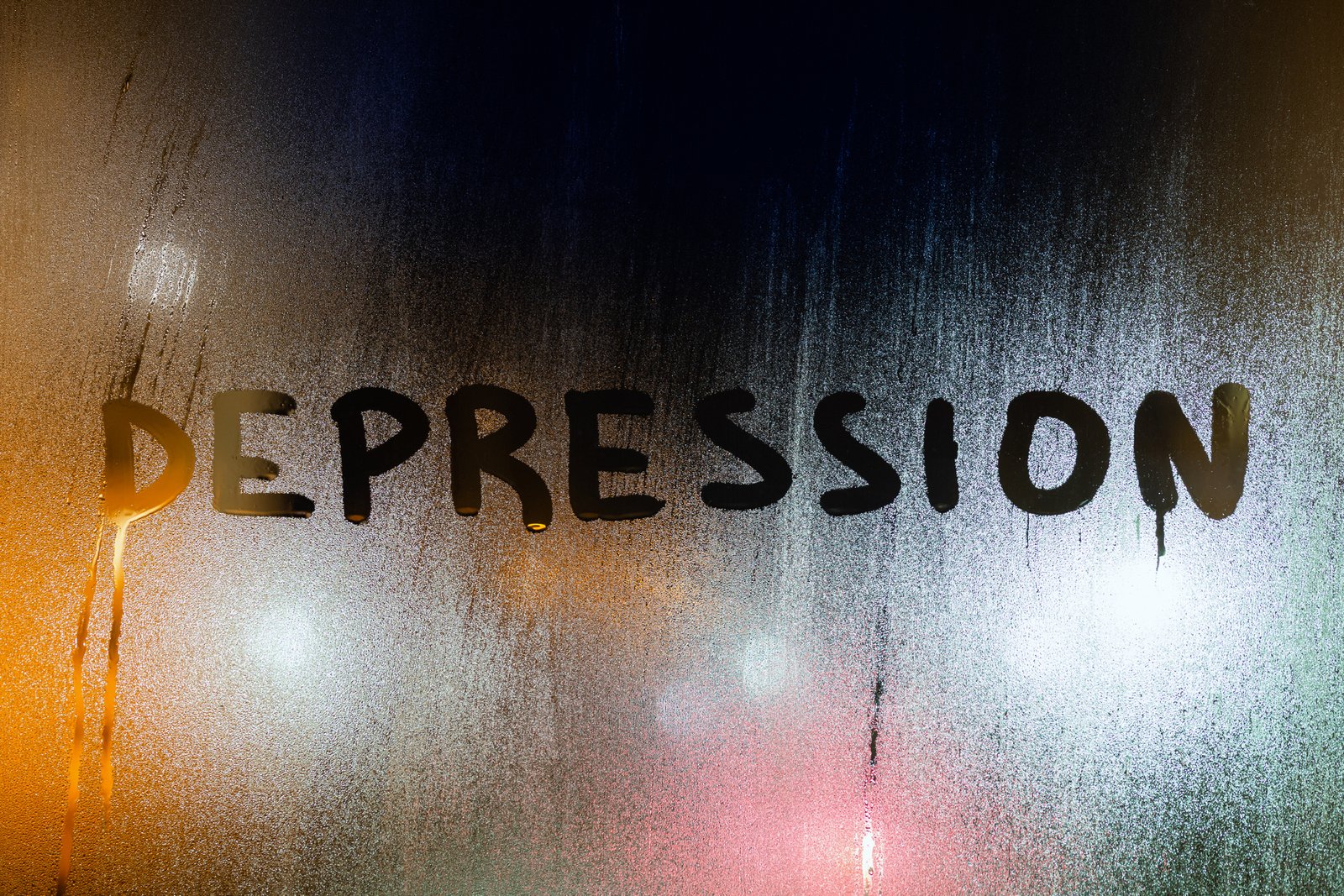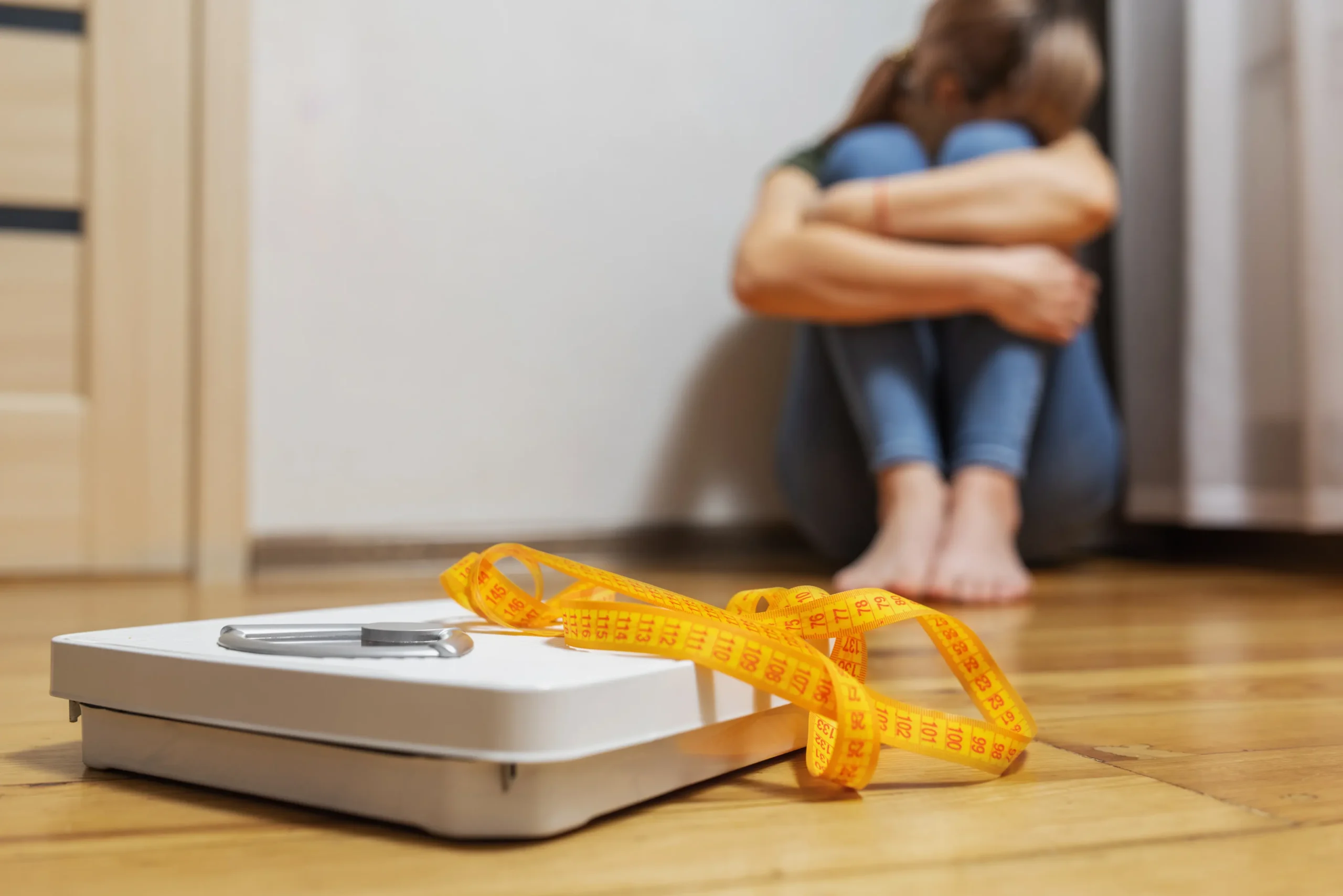Insomnia and Anxiety: Understanding Their Interconnection and Effective Solutions
By adminpsy

Understanding Insomnia and Anxiety
Insomnia and anxiety are two conditions that often coexist, creating a vicious cycle that affects millions of people worldwide. When anxiety takes over, it can be incredibly difficult to fall asleep or stay asleep, leading to chronic insomnia. Conversely, poor sleep can worsen anxiety symptoms, creating a persistent loop that impacts mental and physical health.
What is Insomnia?
Insomnia is a common sleep disorder characterized by difficulty falling asleep, staying asleep, or waking up too early without being able to go back to sleep. It can be acute (short-term) or chronic (long-term), affecting daily functioning, mood, and overall quality of life.
What is Anxiety?
Anxiety is a natural response to stress characterized by feelings of worry, nervousness, or fear. When these feelings become excessive or persistent, they can develop into an anxiety disorder, impacting daily activities and emotional well-being.
The Connection Between Insomnia and Anxiety
Research shows a strong bidirectional relationship between insomnia and anxiety, meaning each can trigger or worsen the other.
How Anxiety Causes Insomnia | How Insomnia Exacerbates Anxiety |
Excessive worry disrupts the ability to relax and fall asleep | Lack of restorative sleep increases stress hormone levels |
Racing thoughts keep the brain active at night | Poor sleep impairs emotional regulation and coping skills |
Physical symptoms of anxiety (e.g., rapid heartbeat) interfere with sleep | Sleep deprivation heightens nervous system sensitivity |
Avoidance of bedtime due to fear of sleeplessness | Fatigue reduces resilience to daily stressors |
This reciprocal relationship means that treating one condition often requires addressing the other simultaneously.
Symptoms of Insomnia and Anxiety to Watch For
Recognizing the signs of insomnia and anxiety is crucial for early intervention and effective treatment.
Insomnia Symptoms:
- Difficulty falling asleep at night
- Waking frequently during the night
- Waking up too early and not being able to return to sleep
- Daytime fatigue or sleepiness
- Irritability or mood disturbances
- Difficulty concentrating
Anxiety Symptoms:
- Persistent worrying or fear
- Restlessness or feeling on edge
- Muscle tension
- Rapid heartbeat or palpitations
- Sweating or trembling
- Difficulty concentrating or mind going blank
- Sleep disturbances (including insomnia)
Why Does Anxiety Cause Insomnia?
Anxiety triggers the body’s “fight or flight” response, releasing stress hormones like cortisol and adrenaline. These chemicals prepare the body to respond to danger but also keep the brain alert, making it difficult to relax and fall asleep.
Key mechanisms include:
- Hyperarousal: Anxiety keeps the brain in a heightened state of alertness, interfering with the natural sleep-wake cycle.
- Cognitive Overload: Racing thoughts and worries prevent the brain from shutting down at night.
Physical Symptoms: Muscle tension, heart palpitations, and rapid breathing can cause discomfort and restlessness.
The Impact of Insomnia on Anxiety
When sleep is disrupted, the brain struggles to process emotions and manage stress effectively. Over time, this can worsen anxiety symptoms and create a downward spiral.
- Impaired Emotional Regulation: Lack of sleep reduces the brain’s ability to control emotional responses.
- Increased Sensitivity to Stress: Sleep deprivation heightens the nervous system’s reaction to stressors.
- Reduced Cognitive Function: Poor sleep impairs decision-making and problem-solving, contributing to anxiety.
Diagnosing Insomnia and Anxiety
A thorough diagnosis by a healthcare professional like Dr. Anjalika Atrey involves:
- Detailed patient history (sleep patterns, anxiety triggers)
- Physical examination to rule out other conditions
- Sleep diaries or actigraphy to monitor sleep behavior
- Psychological assessments for anxiety disorders
Treatment Options for Insomnia and Anxiety
Effective treatment often requires a combination of therapies targeting both conditions. Here’s an overview of common approaches:
Lifestyle and Behavioral Strategies
- Sleep Hygiene: Maintaining a consistent sleep schedule, creating a restful environment, and avoiding stimulants before bedtime.
- Cognitive Behavioral Therapy for Insomnia (CBT-I): A structured program that helps change negative thoughts and behaviors around sleep.
- Relaxation Techniques: Meditation, deep breathing exercises, and progressive muscle relaxation to reduce physical and mental tension.
- Exercise: Regular physical activity can improve sleep quality and reduce anxiety.
Medical Treatments
- Medications: In some cases, short-term use of sleep aids or anti-anxiety medications may be recommended under medical supervision.
- Addressing Underlying Conditions: Treatment of comorbid conditions such as depression or chronic pain is essential.
Complementary Therapies
- Mindfulness-Based Stress Reduction (MBSR): Helps patients become more aware of their thoughts and reduce anxiety.
Acupuncture and Herbal Remedies: May provide relief but should be discussed with a healthcare provider.
Tips to Manage Insomnia and Anxiety at Home
While professional treatment is key, these practical tips can help improve your sleep and reduce anxiety symptoms:
- Stick to a Sleep Schedule: Go to bed and wake up at the same time every day.
- Limit Screen Time Before Bed: Blue light from devices disrupts melatonin production.
- Create a Relaxing Bedtime Routine: Warm bath, reading, or listening to calming music.
- Avoid Caffeine, Alcohol, and Nicotine: Especially in the hours before bedtime.
- Practice Mindfulness or Meditation: Even 10 minutes a day can reduce anxiety.
- Write Down Worries: Journaling before bed can help clear your mind.
When to Seek Professional Help
If insomnia or anxiety significantly interferes with your daily life or persists for weeks, it’s time to consult a healthcare professional. Dr. Anjalika Atrey offers personalized care plans tailored to your unique needs, combining evidence-based therapies and compassionate support.
FAQ: Insomnia and Anxiety
Q1: Can anxiety cause chronic insomnia?
Yes, anxiety can lead to persistent difficulty sleeping if untreated.
Q2: Is it safe to use sleep medication for anxiety-related insomnia?
Short-term use may be safe but should always be under medical supervision.
Q3: How long does it take to see improvement with therapy?
Many patients notice changes within a few weeks, but it varies by individual.
Conclusion
Insomnia and anxiety are deeply intertwined conditions that affect the brain’s ability to rest and recover. Understanding their connection is the first step toward breaking the cycle and restoring restful sleep and emotional balance.
If you or a loved one struggle with insomnia and anxiety, remember you are not alone. With the right guidance and treatment, restful nights and calmer days are within reach.
Schedule a Consultation with Dr. Anjalika Atrey
For expert evaluation and individualized treatment for insomnia and anxiety, contact Dr. Anjalika Atrey today. Take the first step towards reclaiming your sleep and mental wellness.






